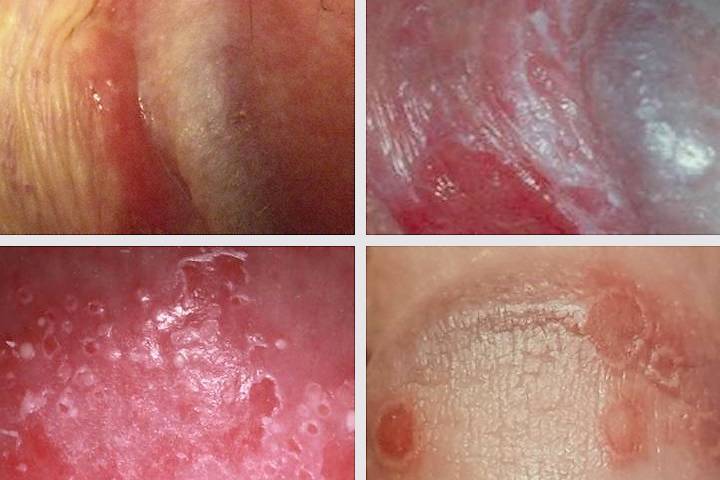 Conditions on an area of men’s bodies which is naturally susceptible to a range of infection and inflammation.
Conditions on an area of men’s bodies which is naturally susceptible to a range of infection and inflammation.
The foreskin is a layer of tissue covering the glans penis (penis head). For cultural, or medical reasons, the foreskin may be removed (circumcised) which does reduce the likelihood of unwanted conditions.
Around 90% of UK men are however uncircumcised and can see issues which range from being uncomfortable, to bringing significant risk if left untreated. Almost all conditions can be successfully treated.
Tightness Of The Foreskin
Quite a common problem, known medically as phimosis. There are cases where the foreskin is stuck in a retracted position, which can stem blood flow to the penis head and requires urgent attention, although most cases are a symptom of underlying conditions.
Foreskin tightness most often arises from infection, inflammation, or scarring, which may be on the foreskin, or penis. Treating these conditions should resolve the tightness, along with the primary causes.
Infection & Inflammation
Whilst infection can occur in other genital areas, the foreskin and glans penis are most often affected. Sexually transmitted diseases such as gonorrhea, herpes, HPV, or syphilis could be reasons for infection, although other causes are more prevalent.
Whether sexually transmitted, or occurring naturally, yeast infections of the foreskin are quite common. You may see a red rash, or white, shiny patches develop, along with itchiness, pain and perhaps a thick, white substance under the foreskin.
Other viral, or bacterial agents can infect the genital region, either uniquely to that area, or as part of a wider issue. Conditions which are thought of as affecting other parts of the body can appear on the penis, or foreskin.
Eczema may develop in this sensitive area, causing the skin to itch and become red, dry, or cracked. Psoriasis is another possibility, along with a disease which in men most often manifests itself on the genitals.
Lichen Sclerosus
Urinary irritation is believed to play a part in lichen sclerosus, along with irregularities in the immune system. A common condition, which can start as inflammation and develop into white, shiny, wrinkled patches on the foreskin, or glans penis.
Lichen sclerosus can make urination, or erections painful, be an underlying cause of foreskin tightness, or ultimately lead to scarring. Diagnosis and treatment at the earliest possible stage are important.
Whilst lichen sclerosus is not contagious, or sexually transmitted, the condition is unpleasant and later scarring could require surgery.
Balanitis & Balanoposthitis
Balanitis is a term for irritation on the head of the penis. Balanoposthitis refers to similar conditions, where the foreskin is also inflamed.
You may see these given as separate medical conditions, although they are essentially umbrella terms for symptoms caused by infection, inflammation, sexually transmitted diseases, inherent skin conditions, or hygiene issues.
The redness, itching, swelling, foreskin tightening, or pain whilst urinating you can suffer tend to be classed as balanitis, with the causes needing treatment.
Diagnosis & Treatment
A consultant dermatologist experienced in male issues can diagnose most penile conditions visually. The latest forms of dermoscopy, microscopy and tissue analysis should still be available and can help at times.
With the range of conditions which can affect the foreskin, or penis, an accurate diagnosis is essential in creating an effective treatment plan.
In a good percentage of cases, topical antifungal, antibiotic, or corticosteroid treatment will bring a solution, with oral alternatives a possibility. Surgical intervention is thankfully quite rare, in such a delicate area.
Understanding the precise condition can help to identify individual causes. They may be purely medical, although could be chemical irritants from hygiene products, chlorine from swimming, latex condoms, or clothing choices.
Providing advice is part of caring for male dermatology conditions at our London clinic, along with seeing them successfully treated to return life to normal.
